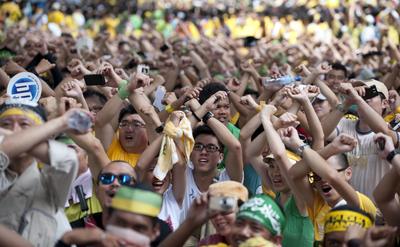Apart from detention without trial for renewable periods of two years under the Internal Security Act 1960 (ISA), many Malaysian laws derogate from constitutional guarantees of due process, and freedom of expression, association and assembly. The Sedition Act 1948 restricts critical discussion of government policies and ‘sensitive issues’; the Printing Presses and Publications Act 1984 is used to refuse or revoke newspaper licenses and ban critical books and newspapers; the Official Secrets Act 1972 is used to punish whistle-blowers; and the University and University Colleges Act 1971 effectively prohibits students from expressing anti-government political views. Moreover, the Societies Act 1966 intrudes into the internal governance of civil society organisations and political parties, while emergency ordinances and regulations that were issued ostensibly because of threats to public order during proclaimed states of emergency are deployed in ordinary criminal investigation and prosecution, with a consequent lessening of procedural and evidentiary safeguards.
These laws are objectionable for at least three reasons. First, the penalties are disproportionately harsh. Second, access to justice is severely restricted by clauses purporting to exclude the courts’ capacity to review administrative decisions. Third, the laws are arbitrarily enforced: prosecutions, or threats to prosecute, are selective, highly politicised and frequently ridiculous, as the government has wielded these laws against critics in opposition political parties, NGOs, student organisations, the legal profession and the mass media.
Prime Minister Najib’s government has indeed introduced many statutory changes in the 12 months since his speech. The results, however, have mostly been disappointing. In several cases ‘reform’, or progressive change, has been trumped by new retrograde measures. The proclamations of emergency have been nullified, but the constitutional provisions permitting the government to reintroduce emergency rule remain. The ISA’s repeal is a real improvement. However, its replacement, the Security Offences (Special Measures) Act, still authorises investigative detention for up to 28 days, allows police to refuse a detainee access to a lawyer for the first 48 hours of detention and permits indefinite post-trial detention while the prosecution exhausts appeals against acquittal. These provisions significantly depart from Malaysian constitutional guarantees and international human rights norms and leave detainees vulnerable to police coercion. New and vaguely worded anti-subversion provisions in the Penal Code are also concerning. Moreover, lengthy detention without trial remains in the Dangerous Drugs Act and the Immigration Act, and, for Muslim non-conformists, some state syariah laws authorise rehabilitative detention for deficits of faith.
With the repeal of section 27 of the Police Act 1967, the constitutional right to free assembly would appear to be restored, as citizens need no longer seek police permission for a public gathering. However, the new Peaceful Assembly Act 2011 introduces a more repressive regime: street protests are completely prohibited, whereas previously they were permissible; the authorities have almost unlimited discretion to impose conditions and restrictions; and now only Malaysian citizens, and not the more than two million foreign workers, refugees and asylum seekers currently in the country, can participate in public assemblies.
Changes to the Printing Presses and Publications Act introduce welcome liberalisation of the mass media. In particular, annual licencing for news printers and publishers has been abolished, and the courts’ jurisdiction to review ministerial decisions is expressly restored. But press licences may still be revoked, ‘false news’ is still criminalised and publications considered ‘prejudicial to public interest’ can still be banned. The government’s refusal to remove or modify these provisions means that this Act will still stifle free speech and restrict democratic deliberation. The new section 114A of the Evidence Act compounds this by imposing control over the previously uncensored Internet. Now an anonymous internet publication is the legal responsibility of the site’s administrator or editor, meaning that, for example, the owner of a Facebook page will be liable for an allegedly seditious or defamatory post left by an anonymous visitor.
Students are now permitted to join and campaign for political parties. However, this amendment to the Universities and University Colleges Act is superfluous because a court recently ruled that the statutory prohibition was unconstitutional. Other restrictions upon student political involvement, and harsh disciplinary procedures, negate the civil liberties the reforms pretend to recognise.
At present the Sedition Act remains unamended and unrepealed, however the government has announced plans to replace it with a ‘National Harmony Act’. Nothing in the way the government has explained the proposal suggests it will be better than the current sedition law. There is little talk of improving the Societies Act or replacing the Official Secrets Act with a much-needed ‘Freedom of Information Act’.
Whole-scale electoral reform to eliminate corruption and ineptitude is crucial. Without it, no significant law reform can be achieved. Malaysians have turned up in the tens of thousands to rallies in July 2011 and April 2012 in support of clean and fair elections. Yet the government’s election reform bill had to be withdrawn because it manifestly failed to include any of the relatively tame changes recommended by the Parliamentary Select Committee on Electoral Reform. Indeed critics labelled the bill a ‘fraudsters’ charter’ because it facilitated, rather than blocked, electoral malpractice.
Together, these ‘law reforms’ achieve some improvements, but not enough. For each step forward, there is another step backward. Even good-enough laws can be used to curtail democratic deliberation and dissent where, as in Malaysia, prosecution is politicised, the separation of powers is not respected, the press is muzzled, the police are overly eager to exercise power, and government agencies are too responsive to extremist pressure groups. And these are far from good-enough laws.
Amanda Whiting is Associate Director, Malaysia, at the Asian Law Centre, the Melbourne Law School, University of Melbourne.
Dr Whiting presented her research at this year’s Malaysia and Singapore Update at the Australian National University. Video footage of the event is available here.

